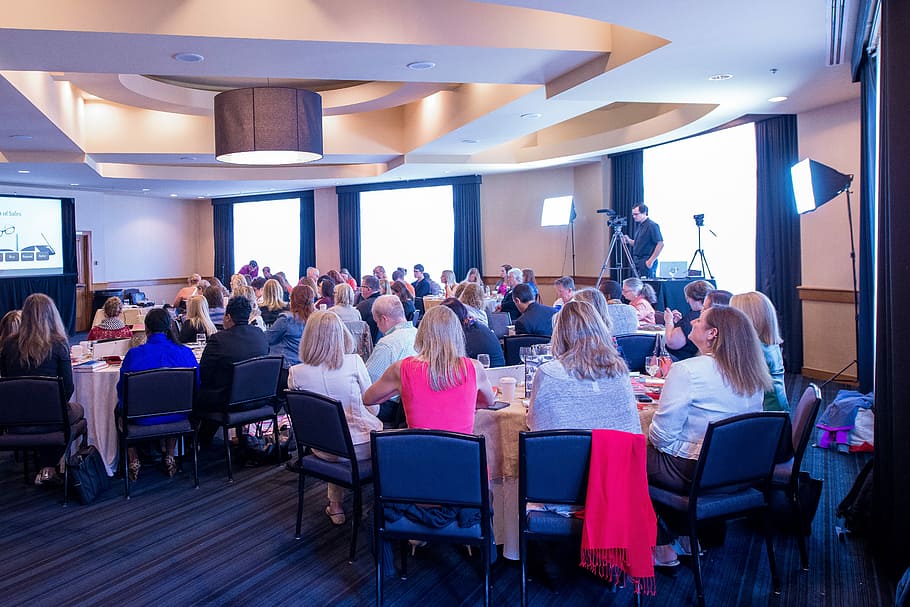In the dynamic landscape of business-to-business (B2B) marketing, events remain a powerful tool for connecting with prospects, nurturing relationships, and driving conversions. Whether it’s a trade show, conference, seminar, or webinar, events provide a unique opportunity to showcase your brand, engage with your target audience, and generate quality leads. However, organizing a successful B2B event requires strategic planning and effective marketing. In this blog, we’ll explore eight practical B2B event marketing tips that event organizers can implement to maximize their event’s impact and ROI.
1. Define Clear Objectives
Before diving into event planning and marketing activities, it’s crucial to define clear objectives for your B2B event. Ask yourself: What do you want to achieve? Whether it’s lead generation, brand awareness, product launches, or networking, having specific and measurable goals will guide your event strategy and help you track success effectively.
2. Know Your Target Audience
Understanding your target audience is fundamental to crafting relevant and compelling event experiences. Conduct market research, analyze past attendee data (if available), and create buyer personas to identify your audience’s pain points, interests, and preferences. Tailoring your event content, messaging, and promotional efforts to resonate with your target audience will drive higher engagement and participation.
3. Leverage Multi-channel Promotion
Effective event marketing requires a multi-channel approach to reach and engage your audience across different touchpoints. Utilize a mix of digital channels such as email marketing, social media platforms, search engine marketing (SEM), and content marketing to create pre-event buzz, drive registrations, and keep attendees informed before, during, and after the event. Consistent messaging and cohesive branding across all channels enhance brand visibility and credibility.
4. Create Compelling Content
Content plays a pivotal role in attracting and retaining audience interest throughout the event lifecycle. Develop a content strategy that includes informative blog posts, teaser videos, infographics, speaker interviews, and interactive elements to showcase the value proposition of your event. Emphasize the educational and networking opportunities available, highlight key speakers or sessions, and offer exclusive content previews to entice registrations and engagement.
5. Partner with Influencers and Industry Experts
Collaborating with industry influencers, thought leaders, and relevant partners can significantly amplify your event reach and credibility. Identify key influencers or experts in your niche and invite them to participate as speakers, panelists, or event ambassadors. Leverage their networks, expertise, and social media presence to promote your event, attract their followers, and enhance attendee experience with valuable insights and networking opportunities.
6. Optimize Event Website and Registration Process
Your event website serves as a central hub for information, registration, and engagement. Ensure that your event website is user-friendly, mobile-responsive, and optimized for search engines (SEO). Clearly communicate event details, agenda, speakers, and benefits to visitors, and streamline the registration process with intuitive forms and secure payment options. Leverage personalized messaging and reminders to keep registered attendees engaged and excited about the event.
7. Harness the Power of Social Media
Social media platforms are invaluable tools for building pre-event excitement, fostering attendee interactions, and extending post-event engagement. Create event-specific hashtags, share engaging content regularly, and encourage speakers, sponsors, and attendees to promote the event across their social networks. Leverage live streaming, behind-the-scenes glimpses, and real-time updates during the event to reach a wider audience and drive conversations.
8. Measure, Analyze, and Iterate
Post-event evaluation and analysis are crucial for assessing the success of your B2B event and identifying areas for improvement. Measure key performance indicators (KPIs) such as attendance numbers, engagement metrics (social media interactions, session feedback), lead generation, and revenue generated. Gather feedback from attendees, sponsors, and stakeholders through surveys or interviews to understand their experience, satisfaction levels, and suggestions for future events. Use actionable insights to iterate and enhance your event marketing strategy for upcoming events.
In conclusion, effective B2B event marketing requires a strategic approach, audience-centric mindset, and continuous optimization based on data-driven insights. By defining clear objectives, understanding your audience, leveraging multi-channel promotion, creating compelling content, collaborating with influencers, optimizing event processes, harnessing social media, and prioritizing post-event analysis, event organizers can maximize the impact and ROI of their B2B events. Embrace innovation, stay customer-focused, and adapt strategies to evolving market trends to create memorable and impactful event experiences.




